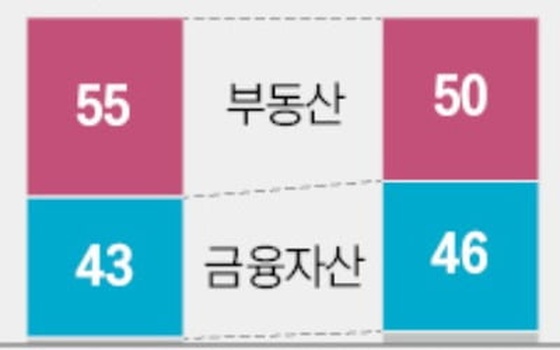입력2006.04.04 07:07
수정2006.04.04 07:11
◆영어원문
Diversification is the name of the game The bursting of the technology and stock market bubble definitely made investors more sober.
Still, many have difficulty to accept the current low return environment with for example bank deposit rates in Korea at record lows of below 4% and dollar deposit rates even below 1%.
It seems double-digit returns are still in many minds, there seems to be a magical 15% p.a., which many companies have declared their return on equity target and many private equity investors consider a lower bound for expected returns.
Admittedly, double-digit returns are not at all an uncommon phenomenon.
Stock markets have delivered them say to 19% level.
Even bond markets delivered double-digit returns for the last few years.
Of course, such returns are not sustainable for extended periods of time.
In his book 'Tomorrow's Gold' Marc Faber, the renowned contrarian investor, makes a simple but striking argument for cautioning high investment return expectations.
If a wise ancestor of us had invested the equivalent of just 1 $ in the year 1000, not at 15% but at a seemingly modest 5% interest, the lucky heir now would own such a big fortune that invested at 6%, he or she would receive an annual interest income of 3 million times the current world GDP.
Faber draws the obvious conclusion that even an annual very long-term return of 5% is just a dream.
The reason is recurring massive wealth destruction through natural catastrophes, wars, hyperinflations, revolutions and certainly not to underestimate more profane but more widespread factors like fraud and simple folly.
Of course, during the world history there were many great investment opportunities with even triple digit returns, but none lasted too long.
Looking at the average lifespan of companies, only very few can manage to survive longer than a human beings lifetime.
Many railroad and waterway companies of the 19th century finally went bankrupt, a fate many car and radio companies of the early 20th century shared, not to mention the venture and internet companies of our time.
Of course, whole industries seldom completely disappear or get bankrupted, but their profit margins normally get back to normal or even sub par level in a quite short time.
The iron law of competition argues against persistent high returns.
The propagators of high investment returns will say that they never promised or expected such returns for a 1000 years, just for the next 10 to 20 or even only the next 5 to10 years.
But this is not too valid an argument.
If such longer-term returns are contradicted by history, basic economic principles and sheer common sense, why should they be more likely in near future.
Marc Faber draws the following lesson for investors: "At all times, the opportune selection of the 'right and undervalued investment theme' was of crucial importance - as was the speedy abandonment of fully valued popular themes that were bound to underperform."
That sounds intuitively right. I would caution however, that the drive to find the great investment opportunities lead many into disaster and itself was the cause for many investment manias and bubbles.
Unfortunately, perfect foresight is not a characteristic of human beings.
The lesson, at least the average investor should draw seems rather that diversification is the most important investment ground rule.
There are so many risk and uncertainties that the old dictum 'don't put all your eggs in one basket' has even grown in importance.The above certainly does not imply that investors should stay away from alternative investments like private equity or hedge funds which promise above average yield.
It just cautions about the realistic level of expected returns.
This does in no way make such alternative investments less attractive.
Their merits do not primarily stem from returns only but even more from their diversification benefits.
They can make a core investment in traditional assets like bonds and stocks more risk-return efficient.
Investors should spread their wealth over different asset classes like stocks and bonds and real estate, private equity and even consider commodities or art investments.
And, investments should be spread globally because no one really can know where and when the next great opportunity strikes.
And let's remember, historically great opportunities for some countries or industries often caused if not disasters then at least decline and hardship for others.
Compared to previous generations, the development of financial services and the globalization of financial markets made such a broad diversification easily accessible.
Mutual funds offer globally diversified stock or bond portfolios and even access to hedge fund and global real estate. And this not just for big institutions or wealthy individuals but for basically for everyone.
![[한경에세이] 소상공인 지원기관이 될래요](https://img.hankyung.com/photo/202404/07.35991182.3.jpg)
![[다산칼럼] 2024년 주주총회가 남긴 성과와 과제](https://img.hankyung.com/photo/202404/07.34201783.3.jpg)
![[차장 칼럼] GTX가 '교통혁명' 되기 위한 조건](https://img.hankyung.com/photo/202404/07.30302760.3.jpg)


![구글, 사상 첫 배당 '주당 20센트'…AI 불안감 덮었다 [글로벌마켓 A/S]](https://timg.hankyung.com/t/560x0/photo/202404/B20240426073327760.jpg)








